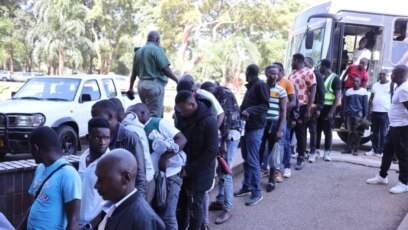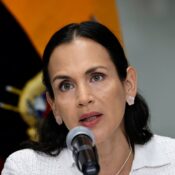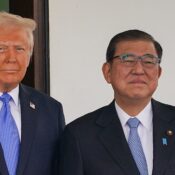
Zimbabwe invites international investors and its expatriate population to invest
The Zimbabwean government is urging its diaspora and international investors to invest in the nation, as they are unable to access offshore credit lines as a result of past loan defaults.
There are citizens in the diaspora who doubt that their investments will provide returns.
According to the government, the goal of the Zimbabwe Investment Summit, which took place in South Africa from Thursday to Saturday, was to promote the country to the outside world.
Mthuli Ncube, the finance minister, told the conference that investors should support Zimbabwe’s economy since it is among the fastest growing in the region.
“After COVID, Zimbabwe’s economy is recovering strongly,” he declared.
“It has shown signs of recovery following a downturn in 2019 and 2020. The economy has been growing at a healthy rate in 2021, with real GDP growth of 8.5 percent; this translates to 6.5 percent in 2022 and 5.5 percent in 2023. And because of the shocks from climate change, growth is expected to be slower this year—3.5 percent—than it was in the preceding three years.
Ncube also advertised a number of tax breaks and incentives for investors that import machinery, such buses for a travel agency, during the conference.
Treasure Basopo, an economist who emigrated from Zimbabwe to Norway three years ago, contends that the country needs to build confidence in the new ZiG currency and control inflation before investors show interest.
Zimbabwe’s gold reserves serve as the currency’s guarantee; most other nations gave up on this means of determining value many decades ago.
Basopo has doubts.
According to him, “the introduction of ZiG defeats the characteristics or the traditional characteristics of what is money, which is basically the ability to store a valid durability, scarcity, and acceptability,” by all definitions and means.
Meanwhile, the annual rate of inflation is currently running at 55%; this is lower than the hyperinflation that previously afflicted Zimbabwe, but it is still high enough to make living expenses challenging for the majority of regular Zimbabweans.
Ncube defended the ZiG during the investment conference, stating that the nation requires a national currency.
It is a form of money that is supported by hard cash as well as reserves of gold and other valuable materials. The conversation is still erratic,” he claimed.
It is a form of money that is supported by hard cash as well as reserves of gold and other valuable materials. The conversation is still erratic,” he claimed.
“Will we disclose our reserve levels to the public? Indeed, we shall. To ensure that we can establish the required confidence in the new currency, there will be an audit of the reserves in our vault, and we will be able to communicate that information on a regular basis.
According to Basopo, investors in the diaspora desire the ability to vote in Zimbabwean elections in addition to reduced inflation and a stable currency.
“This administration wants to take money from the people in order to show your patriotism, but it has lost all of its goodwill and its international credibility to access credit facilities. Which is fine, but what we really need is for the diaspora to have access to the political rights guaranteed by the national constitution, specifically the ability to vote. Investments cannot be made in a nation where you lack political influence. Without voting security, you cannot place your money,” he declared.
VOA tried several times to discuss the conference with government representatives but received no response.
Although several hundred persons attended the three-day event, according to government authorities, no new investments were made as a result of the conference.
All Categories
Recent Posts
Tags
+13162306000
zoneyetu@yahoo.com



